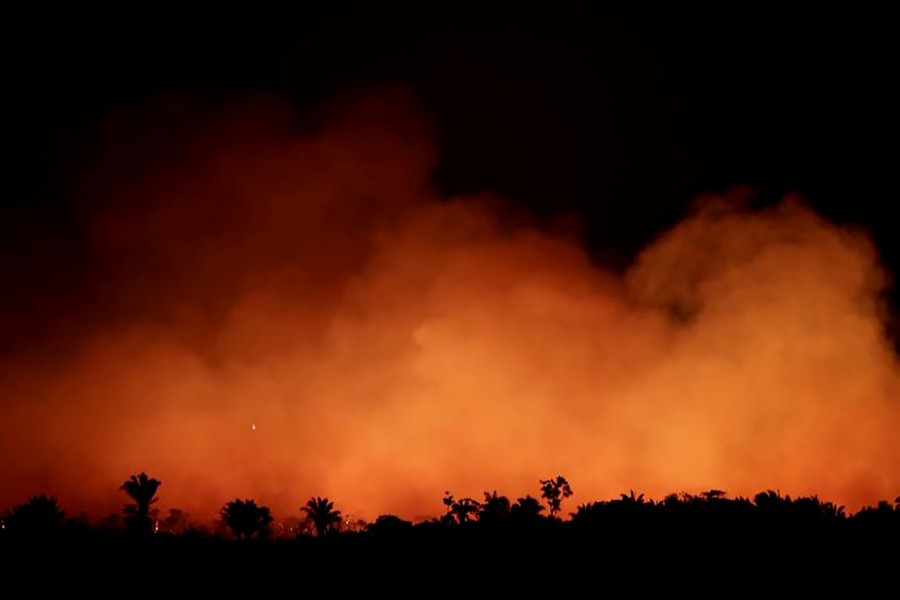The international news is being dominated by the burning of the Amazon rainforest. Although Brazil is more known to and popular with Bangladeshis because of Pele and its football, this time the reason that the South American country is being discussed more and more is because the Amazon rainforests are burning at the most alarming rate ever. Terms like 'ecocide' and 'ecological' carnage have come into use of late. The river Amazon is known as the biggest river in the world, considering its discharge. About 2.1 million square miles of rainforests, about thirty-seven times the size of Bangladesh comprise the basin of the river in nine countries and a storage of ten per cent of global carbon dioxide. They absorb millions of tons of carbon dioxide every year. It has been calculated that protecting and bringing back the forests could reduce nearly a fifth of carbon emissions in a decade's time. Indeed, these rainforests are known as the lungs of the world.
These fires can be traced to a slackening of environmental model and the decision of the Brazilian policymakers to go for speedier exploitation of the Amazon rainforest. Among some of the main reasons given for the destruction of the rain forests are an insatiable appetite for Brazil's beef, and its soybean, abroad. Taken down forests make space for cattle ranches and agricultural land. This year has also seen a slack in the internal controls in matters of environmental balance. A top scientist was sacked because he came up with statistics regarding environmental degradation that was not purportedly acceptable to the rulers. On the other hand, allegations have been raised by policymakers inside Brazil that NGOs were inflating the size of the problem. Besides, it has also been dubbed Brazil's `internal' problem.
That it can no longer remain an internal issue is borne out by the fact that other countries in the neighbourhood are being affected directly by pollution from the fire. Also, if the 'lungs' are affected, the whole body, that is the planet, stands to suffer. The fact that flow of nutrients from the Sahara Desert through seasonal wind movement across the 1700-mile length of the Atlantic Ocean adds to the sustenance of the rainforest is one proof of its international character. Loss of biodiversity from the burning forests will release carbon contained in the trees and will raise global warming. It has been calculated that a fifth of the Amazonian biome, in other words, the community of plants and animals with common characteristics that existed there, has already been lost. The current crisis has been described as a tipping point towards a journey of permanent forestlessness. It is immaterial whether a government is far-right or otherwise. Brazil's plight has been going on for years, being a struggle between environmental conservationists and the hard-core agriculture-cum-logging lobby. The point here is how best to protect the rainforests and make the world a better living place.
Bangladesh is one of the most densely populated countries on the planet. She stands to gain from a healthy Amazon rainforest because of the indivisibility of the planet's eco-system. Besides, the raging fires should bring up a concern regarding how to protect our own forests and rivers. There is a cause for introspection over safeguards needed to protect the Chittagong Hill Tracts and the Sundarbans. As we lunge forward in the job of river and forest-protection, and to protect what nature has given us, we must learn to cherish and nurture our assets.


